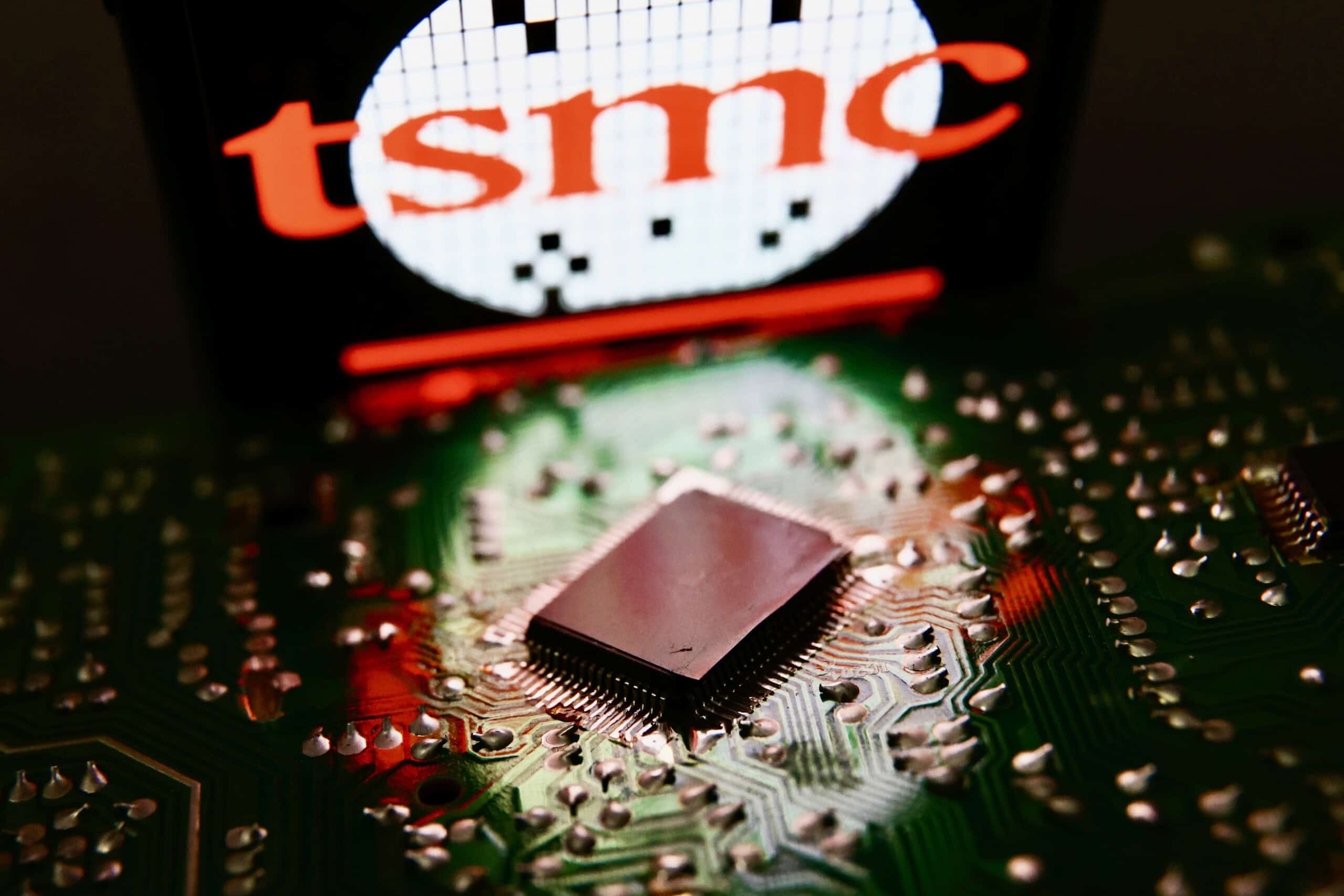For ten years up to 2010, Ken Wilcox was chief executive of Silicon Valley Bank, and one of the key drivers of its strategy of lending to the tech sector. SVB’s collapse in 2023 made international headlines: But in his new book, The China Business Conundrum, he tells the tale of the period after he stepped down from being the bank’s CEO and went to lead its efforts to expand in China, where it invested over $100 million to form a joint venture with Shanghai Pudong Development Bank. A lightly edited transcript of our recent conversation follows in which he talks about the difficulties he and SVB faced, as well as his fond memories of his time in China. Some of the names in the text have been changed to protect the individuals’ involved identities.

Illustration by Kate Copeland
Q: You were involved with Silicon Valley Bank from the start, helping it to develop its model of lending to the tech sector in particular. Why did you, and the bank more generally, want to go to expand into China?
A: Somewhere around the year 2000 I was invited to the first meeting of the Beijing chapter of the Chinese Venture Capital Association. A couple of months later, I was invited to the Shanghai chapter’s first meeting too. On both occasions, I gave a little speech. After that, various venture capitalists who were in attendance — and it was a very small number then — started showing us around, and we came to the conclusion quite quickly that there was an innovation center just getting started; that it was going to grow quickly, and that it would be only a matter of time before it would be huge.
The other thing that I firmly believed in that era, and still believe today, is that technology is one of the few truly global industries. In technology, you can’t be cutting edge in one locale without being cutting edge everywhere. So when I became CEO of the bank in 2001, I redirected our strategy. I asked all the companies that were not in technology to leave and find another bank. And then we filled the hole virtually 100 percent with technology and venture capital firms.
Then SVB CEO Ken Wilcox delivers a presentation for the Stanford Technology Ventures Program and covers SVB’s global expansion, March 5, 2008. Credit: Stanford Technology Ventures Program
The second thing on my list of major decisions was to go global, because we were number one in technology in the U.S. at the time already. We set up shop in Israel, in India, in the UK. These early experiences motivated me to push hard on going to China.
Why did I think our business model would be transportable? In retrospect, it was because I was largely unprepared and ignorant. On the surface, it seemed like it would work, because it worked in Western countries. Our business model was fundamentally this: we get involved with venture capital-backed companies at the outset. As soon as they attract venture capital, we rush in, and leverage that venture capital, so that it lasts longer and so that the companies have to give up less ownership to the VCs.
In China, it seemed like we had all the components in place. We had innovation oriented companies, we had venture capitalists. All we needed was ourselves to complete the triangle.
But it turns out, it wasn’t that easy.
And how did you end up being in charge of this effort to break into China?
| BIO AT A GLANCE | |
|---|---|
| AGE | 76 |
| BIRTHPLACE | Howell, Michigan |
| FORMER POSITIONS |
|
I was going to retire at the end of 2010. I was old enough that I could just go home and play with my grandchildren.
But it became clear during 2009 and 2010 that the Chinese Communist Party was anxious to have us come to China, and that they were going to “pave the road” for us. We held a board meeting in Shanghai, and the board was so impressed and convinced that they decided that we’d accept the invitation.
But it turned out that initially, nobody wanted to go except me.
How long did you think it would take for this venture to become profitable and provide a good return on your investment?
I was planning on maybe two years, which was foolish in retrospect. But I thought, look at the people from the CCP who were lavishing flattery on us. They were telling us that we were the most important bank in the entire world, more important than Goldman Sachs or Morgan Stanley — they had to have us, and they were going to make it easy for us.
There were doubtless people at SPDB that would have liked to see us succeed to a greater extent. But the whole purpose of the project, I’m convinced, was to learn our model. We had an art, and they wanted to learn the art.
So I envisioned this thing flying off the launch pad in no time. I had no idea what I was in for. It ended up being four years that I was there. And frankly, it could have ended up being more because we hadn’t really gotten off the launch pad, even in the four years that my wife and I were there. We were having such a good time that we would have stayed longer. But it turned out, other people back in California convinced themselves that they’d like to join in the fun. So I was, in a sense, relieved of my duties before I wanted to be.

And how did SVB end up with Shanghai Pudong Development Bank as its joint venture partner?
We were, in effect, seduced by Yu Zhengsheng, who was then the party secretary of Shanghai — when Xi Jinping came to power in 2012 he was elevated to the standing committee. He sat with me in a number of meetings over the course of several months, saying, Ken, you’re the smartest American I’ve ever met. You’re the one who gets it here. And we love your bank. We have to have it. I knew that it was an exaggeration, but it felt good.
That was the first step. And then, as apparently is the case in so many instances, it was always a case of ‘hurry up and wait, hurry up and wait’. They appeared to be in no rush once they had us there.
After we got our initial license, we were told something that they could have explained to us earlier: that unfortunately, there was another law on the books, that for any new bank with any percentage of foreign ownership — we had negotiated a 50:50 joint venture — you’re not allowed to use renminbi for the first three years of operation. Which kind of makes it impossible to do any business at all.
| BOOK CORNER | |
|---|---|
| RECENT READS | Red Notice by Bill Browder, The Political Thought of Xi Jinping by Stephen Tsang and Olivia Cheung |
| FAVORITE BOOK | My Brilliant Friend, Elena Ferrante |
I spent three years trying to get an exception to this. But at the end of the three years, they finally came to me and said, We’re so happy, this is the big day, you can start using renminbi — and, oh, one other thing, we so admire your business model that we’ve decided to start our own bank with a similar one; and would you spend some time with its management team, helping them to understand some of the things that they don’t totally get from having watched you twiddle your thumbs for three years.
So ultimately, the reason they were keen to have you there was because they wanted SVB’s intellectual property?
I think that’s largely true. Make no mistake, this was being directed from on high. In other words, the joint venture partner, Shanghai Pudong Development Bank, was told that they were going to marry us. They didn’t raise their hand and say we’d love to: Yu Zhengsheng said, You’re the one we’ve chosen. There were doubtless people at SPDB that would have liked to see us succeed to a greater extent. But the whole purpose of the project, I’m convinced, was to learn our model. We had an art, and they wanted to learn the art.

I’m convinced many companies fall victim to this ‘scheme’, if you will. Many of them aren’t aware of it initially. It takes them a long time to figure it out. In addition, even those who become aware are reluctant to talk about it, because it’s as much as saying, ‘I was fooled, I’ve been played.’ And who really wants to admit that. Plus they fear retribution.
Could you and others at SVB have done more to anticipate problems like having to wait for the right license — especially since by the time SVB went in, other foreign banks, like Morgan Stanley or Goldman Sachs, had already tried to crack the China market.

Yes, it would have been desirable. And if we had pushed harder, it’s possible these things would have been disclosed to us. On the other hand, we spent a year and a half talking to government officials [before entering China]; and once the joint venture partner was assigned to us, we spent hour after hour planning the way it was going to go, and building the shareholder agreement. So they could have told us that before they gave us the license. But I do think that I was ill prepared and that it was my own fault.
There were numerous reasons why it would have been difficult to replicate our model, and I think if I had been less naive, and maybe if I had spent a few years in China before even having gotten the license, I could have uncovered some of those things. But it’s fairly difficult to pose the right questions and hope that you’re given straightforward answers.

One aspect of the model that worked in the U.S. was that people would pay us slightly more because we were delivering a more sophisticated service, taking greater risk, and we had to spend more time convincing regulators that what we were doing makes sense. Customers of Chinese banks, though, view them more like utilities. They’re not really willing to pay a premium for special service.
Another aspect is that there’s no uniform commercial code in China. It’s very difficult to take liens even on concrete property, much less abstract property like intellectual property. So it’s almost impossible to get a bona fide security interest in an asset.
Another problem is that the Chinese government is so heavily involved, even in technology. The Financial Services office in Shanghai had a particular person responsible for identifying what they were calling ‘Little Giants’, tech companies that they believed were going to be successful in the future. And frankly, they could also determine who was going to be their bank. It wasn’t the normal process of going out as a bank into the market, and selling yourself to appropriate candidates.
There’s a whole list of people that had influence and made decisions that affected us and all seemed to know each other. It seemed like a ‘secret team’, but the coordination effort on their part led me to believe that there definitely was a plan in place.
In fact, one of the things that SPDB had promised us during the year or so that we were negotiating the shareholder agreement was that they were not going to pursue technology companies: that would be left totally to the joint venture. And sure enough, within a month or two of getting the license, our bankers discovered that SPDB was competing against them.
The final factor is that Chinese banks are not afraid of risk. Look how many banks U.S. regulators have closed in the past 40 years — at least a few thousand. How many Chinese banks have been closed since Deng Xiaoping reintroduced the banking system? Max, two or three. And that’s because the government quietly recapitalizes the banks that screw up and takes bad assets and puts them in a landfill, figuratively speaking.
It’s a sort of moral hazard, but it’s not widely discussed. When the U.S. regulators took over SVB a year and a half ago — which was not the result of our business model, it was a result of an horrendous error on the part of the CFO that wasn’t corrected by the board — everybody in America who knows how to read knew about SVB. They all do if a bank comes close to failing. In China, they don’t. It’s a little bit hush hush.
So do you think that SPDB, your partner, actually wanted the JV to succeed?
In the end, not really. There were individuals who wanted it to succeed, largely because they wanted to please higher level party members. They cared about whether or not they learned things from us that they could use.
Can you talk about the existence of what you called a ‘secret team’ guiding the bank from outside?
I hope that I wrote about that in such a way that the reader would realize that I’m not sure if that was my perception, or the reality. But I can list about ten or 11 people, none of whom introduced me to others in the group: It was like I had to meet them all by myself. Each one of them seemed to play a role, from a governance point of view, in the evolution of our organization. And in time, I learned that they all knew each other and that they actually gathered occasionally, not necessarily all together, but in groups of twos and threes, and discussed our evolution.

There was a guy named Chairman G [not his real name] who was the chair of an organization called Shanghai International Group: SPDB was one of the 20 or so companies that were part of the group. He was always affable, and when I had problems and needed somebody to step in on my behalf, he appeared to be doing that.
There’s a whole list of people that had influence and made decisions that affected us and all seemed to know each other. It seemed like a ‘secret team’, but the coordination effort on their part led me to believe that there definitely was a plan in place.
What was your perception of how the CCP committee inside your bank worked?
There was a fellow in the bank named Mr. Sun — I gave him a different name in the book — and he was in charge of a group that monitored SPDB’s joint ventures.
I took him to lunch one day early on at the Key Club, a club for Westerners and Chinese alike, to get to know him better. I didn’t realize that he was going to turn out to be an adversary. And he said, You know, I’ve studied your business model, and I don’t like it, and I’m going to do my best to prevent you from rolling it out. So I said, Well, really, how are you going to do that? And he said, Well, I’m going to be part of the Party committee. And I said, What’s a party committee? I’d never heard the term until that day.

He said, a party committee is like a board behind the board and it consists only of party members, and you won’t know who they are — of course, you’ll know that I’m on it because I’m telling you — and they will be making the final decisions around the direction that your organization takes. And I thought to myself, our board in the U.S. thought they have a 50 percent interest in a joint venture — they will be astounded to hear what you just said.
Right after lunch, I talked to Mr. Luo [not his real name], the president of SPDB and chairman of our joint venture, and his second in command and I asked about this party committee concept. They both pooh-poohed it, but they promised to have lunch with me the next day. Both insisted that Mr. Sun was just a silly man with a lot of imagination and that there is no such thing.
Well, within a year, Mr. Luo was trying to convince me that there are such things as party committees, and we had to have one, and I better get used to it. And I said, Well, what party is that? And he said, Well, of course, it’s the Chinese Communist Party. And I said, we can do that, but we have to have a Republican Party and a Democrat party too. I was just trying to be funny.



A 2024 “Party Building and Operation Work Conference” was held at Qinnong Bank (left), Bank of Shangrao (middle), and Bank of China (right). Credit: Qinnong Bank, Bank of Shangrao, Bank of China
Then I said, Why do we need this? He had a different definition of a party committee, as like a club for the members of our bank who are in the Party. He said, right now, thanks to your stubbornness, each one of them has to gather in their own neighborhood or some other organization. And it would be so nice for them if they could just group together within your bank. And ultimately they did set one up. If you’re building a bank in China, you’re not really as in charge as you would like to think you are.
How much actual banking did you end up doing in China? You seemed to spend an awful lot of time on bureaucracy.
The answer is, pitifully little in the first three years. Once we were able to use renminbi, we did more. But I was already headed back to the U.S. by then.
…you better make the bulk of your profits in the early and middle years of being in China, and hope that the tail is a long one. Because the Chinese desire to have one of their own doing the same thing is very large.
As soon as I found out or that they were serious about us not using renminbi for three years, I spent my time trying to find an exception. Given what I’d learned about how hierarchical China was, I felt ultimately that if I wanted to make progress, I had to get to Xi Jinping.
At the end of the first year, I found myself at a government conference, sitting next to a professor who was an economist at one of the party schools in Beijing, and he was very interested in our bank. In fact he had two interests. One of them was whether it would be possible for me to be helpful to his daughter, who was studying at Stanford.

He also said, I want to help you get permission to use renminbi. He happened to know the editor in chief of the Shanghai branch of Xinhua, and suggested he and I together write articles about the bank for the edition of Xinhua that goes to the top levels of the Party, to see if we could get a message to Xi this way. So we wrote a number of articles: I was writing the articles, and he was massaging them. We got them to go up the chain. And according to him, when they came back down again, they had notations in the margin that were, if not from Xi Jinping, at least from his second in command, suggesting that the people at lower levels should give us a break. But nobody ever did.
And finally, one of the party officials in Shanghai took me to lunch and told me I ought to cool my jets, that I had pushed my point to the extent that I was beginning to annoy some people. So, I assure you that I was gainfully employed for 24 hours a day. But it wasn’t banking.
One concept that you talk about in the book is the idea that in China, you need ‘leverage’ to make progress. What do you mean by that? And what leverage do you think SVB had, and do you think you could have used it better?
I’d like to reference an author that I would recommend to everybody, a since deceased professor at MIT named Lucian Pye. In 1982 he wrote a book which basically said that if you’re going to negotiate with the Chinese in a commercial setting, beware: and he listed different things you might face, including ambiguity, manipulation, obfuscation, shaming, and no intent to actually abide by the terms that you negotiate.

And he emphasized, more than anything else, leverage — that it’s not about getting to yes, and that the only way you can succeed in a negotiation in China is by having leverage and keeping it.
What you want to do is make sure that you go in small steps; you don’t want to take too big a step at once, because the minute you take a step, you lose some of your leverage. You want to make sure that the Chinese side takes its step first; you then take your step, but make sure it’s small enough that there’s room for another step and another step, so you can keep giving and taking, giving and taking.
In our case, one of our points of leverage was they wanted our $110 million investment in the JV. Shortly after the $110 million went in on our side, Mr. Sun got a hold of one of my lieutenants and told him to deliver a letter to our board and not to show it to me. Of course, my staff member did show it to me, and the letter basically said, we’re tearing up the JV agreement and negotiating a new one.

So the concept is that every day, you wake up and reassess the relative leverage positions. And you renegotiate if you have more, and you expect to renegotiate if you have less than you did yesterday. It’s no coincidence that Mr. Sun waited until two or three weeks after our $110 million went in. My recommendation — and I’m not sure it’s even possible or that I’m clever enough to pull it off — is to identify your leverage, and make sure that you dole out what they want in small enough portions that you can always retain some modicum of that leverage.
The other thing I want to mention here is never show anger. Because they interpret anger as weakness.
And you did on a couple of occasions, right?
Yes, I did, and then I soon learned my lessons and didn’t do it again. But it does you absolutely no good, other than it weakens your position. That’s why, in my opinion, [former President] Trump is uniquely ill suited to the particular task of negotiating with Xi Jinping. He’s too emotional.

Do you think there’s something about the financial services sector in particular that makes it hard for foreign companies to be successful in China?
All industries in China are controlled to one degree or another, and banking and financial services would be very high on that list. As you know, the Chinese economy works differently from any other economy, because it has its own set of rules, and it takes a while to figure them out. The CCP has a multiplicity of levers that it can pull.
Now there are people that will give you other answers. John Thornton, who was at Goldman Sachs for a long time, can’t say enough good things about the way the CCP operates, and he insists that they’re totally open to foreign entrants into the financial services space. But that’s because the flag he’s carried most of his life was that of Goldman Sachs which, I think, has a special place in the hearts of the top level party officials, because they have no counterpart in China that is capable of doing the things it can do.
| MISCELLANEA | |
|---|---|
| FAVORITE MUSIC | Mozart |
| MOST ADMIRED | My father, who was extremely kind and welcoming of people from all backgrounds, cultures, countries, and ethnicities. |
Your book illustrates the extent to which there’s not really a level playing field for an organization like yours in China. Do you think, then, that the decoupling people are talking about is almost inevitable, and to some extent desirable?
I do. I do think decoupling is inevitable and to some extent desirable.
Of course, there are numerous problems associated with decoupling — we’re damned if we do, and damned if we don’t. Supply chains are very long, and in many cases very complicated. So deconstructing those is a major effort and will take a while. And although this isn’t technically the same as what you’re talking about, there are people who talk about bringing manufacturing back to the U.S.. That will be very difficult, because we’ve lost our knowledge base.
And for somebody who’s thinking about setting up a business in China, would your advice be don’t bother? Or do you think there are still good, sustainable profits to be made there, if you get it right.
I am more of the latter opinion: But I do think that getting it right is incredibly difficult, and that it requires more humility than many of us have, because each one of us wants to be the genius that cracks the code and declares victory prematurely. And victory will not come quickly. It requires a lot of experience and a lot of cleverness.
I also think that you better make the bulk of your profits in the early and middle years of being in China, and hope that the tail is a long one. Because the Chinese desire to have one of their own doing the same thing is very large.
You say in the book often that you had a fabulous time in China. How did you retain that optimism and goodwill? Because, in a sense, the book is about how you were being taken for a ride.
I don’t know! There’s more to life than just success: There’s the adventure. I met so many people that I found interesting, and there are many, many good people in China.

Andrew Peaple is a UK-based editor at The Wire. Previously, Andrew was a reporter and editor at The Wall Street Journal, including stints in Beijing from 2007 to 2010 and in Hong Kong from 2015 to 2019. Among other roles, Andrew was Asia editor for the Heard on the Street column, and the Asia markets editor. @andypeaps





